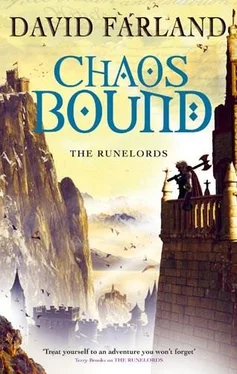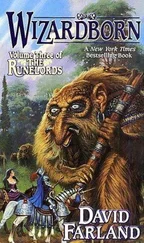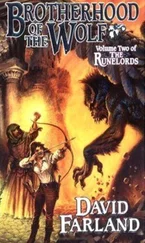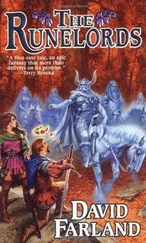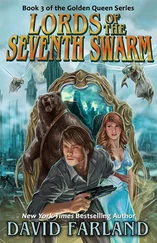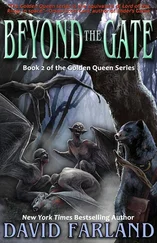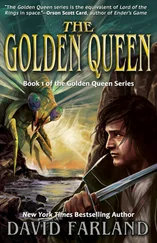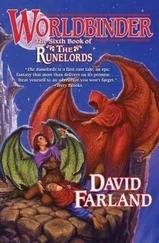Rain’s heart thrilled at the news, and she watched the proceedings with trepidation. The barbarians of Internook had always been enemies in her mind but now she found herself hoping for their success.
Lest a wyrmling patrol happen through town, Warlord Hrath had the young men take posts, surreptitiously acting as guards. They worked in barns and fields along the roads, with orders to whistle a certain song if any wyrmling happened along.
As the forcibles ran out and dawn blossomed, the crowds thinned, and sun came up a ruddy gold, with clouds on the horizon, their hearts blue and their edges lined with molten copper.
The old facilitator was weary, ready for bed, but Aaath Ulber had one more task for him. He pulled up his pants leg to reveal a welt, red and scarred with age. It was a rune that Rain had never seen before.
“When we get more forcibles, can you make a couple of these?” Aaath Ulber said.
The old facilitator knelt and studied the welt. He began to tremble nervously, then to laugh, giddy with excitement. “Is that what I think it is?”
“Yes,” Aaath Ulber said. “I got it in Inkarra when I was young. That, my friend, is the legendary rune of will.”
Rain studied the thing. It was an odd symbol that reminded her of a drawing of a thistle—with a central hub with many sharp spikes poking up from it.
A rune of will, it was said, multiplied most of a man’s abilities. Any man would be made stronger by it, faster, fiercer in battle.
But what will it do to Aaath Ulber, she wondered, a berserker who lost all consciousness in battle and became mad with bloodlust?
At that moment, there was a shout. “Leviathans! Leviathans in the bay!”
Everyone in town cheered and celebrated. There was a great blowing of war horns. The entire town turned out, rushing down the cobblestone streets.
Dozens of the great serpents were out in the water, eeling about. They roiled to the surface and the morning sun glinted off their silver scales, which were pocked with barnacles. The great males swam about with their fins rising up out of the water, some of their pectorals riding six feet above the foam.
Before the school of leviathan came the fish—huge schools that raced toward the shallows. As they neared the fish trap, they grew so close together that there was not an inch between them. Huge schools of red snapper and sea bass had gathered, their fins splashing the water white. Many of them leapt as much as a dozen feet in the air, struggling to get into the fish trap, and as always, not two hundred feet off shore, the leviathans circled ominously, thrashing and lunging as they took the largest fish.
Warlord Hrath studied the spectacle, beaming, and slapped Aaath Ulber on the back. “You’ve brought great luck to our village! We have not seen so many leviathans in years!”
Rain wondered how long the luck would hold.
Beware of making plans in desperation, for when you do, you are only reacting to your enemy. It is far better to think ahead, to force him to make the desperate plans.
—Hearthmaster Waggit
“Are you really going to attack the wyrmlings?” Draken asked his father that morning. “I mean, that wight of theirs, she helped you, right?”
“I’ll not be beholding to a wyrmling wraith,” Aaath Ulber explained to Draken. “She helped us for her own purposes, and I’ll have none of it. In fact, since she wants to make me her pawn, I want all the more to get rid of her. I’ll gut her along with the rest of her folk.”
Draken shivered. Dawn had come clear and cool, so much colder than the mornings back home in Landesfallen this time of year. He tasted a hint of ice in the air, and a bitter winter ahead. The sun slanted in through the village, casting blue shadows, and the smoke from cooking fires in the long houses clung near to the ground in the heavy air.
The men sat in the shade on the porch of an ale house, with the morning sun beating down all around them. Old Warlord Hrath seemed to be the leader of the town, but for the purposes of plotting this war, he had relegated a great deal of authority to young Wulfgaard.
The young man had brought a map from his house written on heavy parchment. The map itself might have been drawn fifty years ago, the parchment was so old and worn, but there were new markings painted here and there, and small notes written with charcoal.
The map showed the island of Internook, with its rough coasts and frozen tundra. But of greatest value was the information about the cities. Each city and village was shown in an inked circle, and beside the circle was a number in charcoal which represented the quantity of wyrmling troops assigned to guard that town.
In addition, a wash made of thin red paint showed where wyrmling patrols had been spotted.
“Not all of the figures are accurate,” Wulfgaard apologized. “I’ve got word from many of the towns along the coast, and from many of the farther villages, but I had to guess in some instances. Still, it is not hard to guess, if you know how many long houses are in a village. The wyrmling guards number only one to every one hundred of us.”
All in all, the map was a masterwork of intelligence gathering. Draken was impressed, as was Aaath Ulber.
But Draken had to wonder how one man might hope to secure the island, for it seemed that the island was covered in cities and villages. Hunting down the wyrmlings in each area might take weeks or months. And no matter where Aaath Ulber began his attacks, the wyrmlings would surround him.
But now Aaath Ulber put his finger on a dark blot some eighty miles south of them—the wyrmling fortress.
“Here,” Aaath Ulber said, “this is the prize. This is where we must attack.”
Some children ran past carry ing buckets. Aaath Ulber held the map on his knees, drew a long draught from a huge mug.
Draken wondered how many great battles had been plotted on the porches of ale houses.
The village was a riot. The fishermen were out on their levee with nets and spears, harvesting sea bass in great quantities. The women in town had taken up knives, while the children took the filets and soaked them in brine. The whole town had turned out for the harvest, and there was singing and rejoicing.
A carrion crow flew to the top of a merchant’s shop across the street and sat on a black iron weather vane. Warlord Hrath peered up at it and grimaced. The crow merely squatted on its perch, braving an afternoon wind that barely ruffled its feathers.
Aaath Ulber studied the map. “This wyrmling fortress,” he asked Wulfgaard, “have you found the bolt-hole for it?”
“Bolt-hole?” Wulfgaard asked. “There is none. There is only one way in, one way out.”
“The wyrmlings always have a bolt-hole,” Aaath Ulber explained, “sometimes more than one. A wyrmling warren is like an ant hive. The air within it needs to be refreshed. So there must be a second entrance somewhere. It has to be large enough for a wyrmling to get through, so it will have a roof of four or five feet at least. The bolt-hole will not be in sight of the main entrance, nor can it be at a higher elevation. Usually, it will be on the far side of a hill—not less than two miles from the main entrance, but often ten miles or more.”
“We haven’t seen anything like that,” Wulfgaard said. “Not a trace.”
“I’ll have to find it then,” Aaath Ulber said. “The wyrmlings will have it hidden. Rocks or brush might cover the entrance. But if you follow the wyrmling’s tracks . . .”
Aaath Ulber pointed out three large hills on a ridge to the west of the wyrmling fortress. “I’ll check here, behind this tallest hill. That’s a likely place.”
“I’d like to come with you, if I may,” Wulfgaard asked.
Читать дальше
